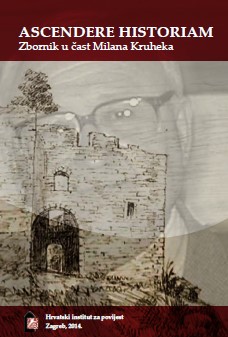Poredbeno istraživanje Sretna grada Frane Petrića i Kućnika Josipa Stjepana Reljkovića
Comparative analysis of Frane Petrić’s La città felice and Josip Stjepan Reljković’s Kućnik
Author(s): Zlata Živakoviž Kerže
Subject(s): Agriculture, Economic history, Economic development, 16th Century, 17th Century, 18th Century
Published by: Hrvatski institut za povijest
Keywords: renaissance economical ideas; Slavonia; Frane Petrić; Josip Stjepan Reljković; economic development; village; city; advisor;
Summary/Abstract: The reflection of the renaissance economic ideas in Slavonia can be traced on certain level in Josip Stjepan Reljković’s Kućnik. The content of that book, which was published in Osijek in 1796, as well as of the Frane Petrić’s La città felice, which was published in 1551, are highly influenced by the economic idea of a human as the social being. In the beginning of Reljković’s Kućnik and in Petrić’s La città felice one can easily found statement that economic wealth is foundation for the development of the village as well as of the city. By analyzing these two books, one can argue that there are various topics on “agrarian-economic relations”. Both authors, Reljković and Petrić, by their writings, wanted to educate new generations in order to accomplish basic idea of social community of which foundation would be assurance of primary human components – soul and body. Therefore, the renaissance economic ideas can easily be seen in providing necessities for human diet. Furthermore, Petrić’s work is some sort of a handbook for agriculture and livestock farming which are “a work hard and full of anxieties, and for them you need strong men who can bear it”, while Reljković teaches and cautions Slavonian peasant what “every kućnik” need to know. Finally, the origin of “instructive literature for farmers”, among which is Kućnik, is in the instructive calendars of Johann Colerus (Johann Zorn 1560-1639), and these type of was spread not only in the German speaking areas but also in the whole Europe, it is obvious that these ideas were present in Slavonia in 18th century and that they were spread by the circulation of Reljković’s book.
Book: Ascendere historiam: Zbornik u čast Milana Kruheka
- Page Range: 187-195
- Page Count: 9
- Publication Year: 2014
- Language: Croatian
- Content File-PDF

